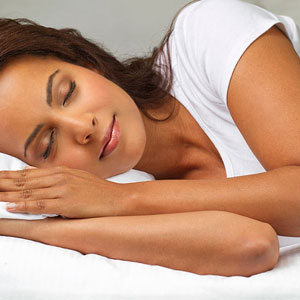At What Time Should I Go to Bed at Night?
Basically speaking, there are two kinds of people: early birds and night owls. However, regardless of which category you fit in, in case you are asking what time should I go to sleep, you should know that things are a bit more complicated. In order to know when the best time to sleep is, you will have to take into consideration several factors. For instance, you will have to think about your biological clock and your sleep cycles. While some options might work for others, they could be disastrous for you. Maybe the best way to find an answer is through trial and error.

At What Time Should I Go to Sleep to Have a Restful Night and to Wake up Refreshed and Recharged in the Morning?
So, at what time to go to sleep in order to make the best of your rest? Is there any way for you to calculate it or you will have to keep trying until you get it right?
1. It's all in your head
When asking what can help you sleep, the first thing you should think about is your brain. There is the suprachiasmatic nucleus (also known as SCN) in the brain where the optic nerves criss-cross. This is the part of the brain that keeps the time. As a matter of fact, this is the part of the brain that tells your body to go to sleep at night. The SNC is so important for the brain that is receives the most abundant blood supply. This part of the brain will tell you to go to sleep and the best thing about it is that it is almost impossible to destroy (not even a stroke can damage it). All this means that people don't sleep at random times; there is something telling them exactly when they have to sleep.
2. The level of alertness
As interesting as it may sound, the alertness levels of people aren't constant. A lot of people might think that they are the most alert after waking up in the morning, but this might not be the case. Even if you wake up refreshed, your level of alertness has been developed based on your survival needs. According to this, people are most alert before going to bed and at midmorning. On the other hand, they are the less alert at late afternoon. This is why it feels so good to take a nap after having lunch. Keeping track of these cycles can really help you sleep.
3. Sleep cycles
For sure you know that people have sleep cycles of 90 minutes. This is because in prehistoric times they needed to be alert at times during the night as well. Back then people had to wake up some a few seconds and check if everything is in order. For the same reason women can wake up on time to nurse their babies during the night. Did it ever happen to you that you went to bed and then started to worry about the door not being locked? Although you are able to go to sleep, in a couple of hours you will wake up and most probably will check the door. All people need a sense of security. Making sure that your environment is totally safe will help sleep at night.
4. REM and non-REM cycles

Another aspect to consider when it comes to best bedtime is REM sleep. This stands for Rapid Eye Movement and it is a lighter and less restorative sleep cycle. Non-REM, on the other hand, means a deeper sleep that is more refreshing and more restorative. Specialists believe that these cycles appear at certain times, regardless of when you go to bed. This means that if you go to bed late, you will have little non-REM sleep and the normal amount of REM sleep. REM sleep happens in the morning when your brain is more active and this is also the time when people dream. The downside is that people working late at night, such as bartenders, have very little healthy sleeping. Based on when you get your sleep, the quality changes. For sure you noticed that if you go to sleep late at night, you feel groggy in the morning.
5. Help me sleep now!
Some people might say that an hour of sleep before midnight is as good as two hours of sleep after midnight. Although this may be a popular belief, you should know that it is entirely false. If you are thinking to yourself Help, I can't sleep! you should consider that you may be going to be too early. If you go to bed but your body is still alert, trying to go to sleep will be just like swimming against the tide.
6. Come up with a plan
In case you cannot sleep at night, you should consider setting a time at which you will wake up every day. The truth is that there is no one best time to wake up. This is something you have to decide for yourself. Some claim that 6 a.m. is optimal for people to wake up at, but that might not work for you. You should set a time, at 7 a.m. for instance and stick to it, even on the weekends. When asking at what time should I go to bed, you should listen to your body. Don't go to bed if you don't feel tired or you will just toss and turn. Find out how many hours you need to sleep at night and count backwards. Make sure that you stick to this plan every day with little to no exceptions.
7. Why Should I Care?
Once you reach adulthood, there is no preset time to go to bed. However, if you are a responsible adult and you wish to take care of your health, you should make your own schedule. Make sure you have enough sleep, not only from a quantitative point of view, but also from a qualitative one. You may not notice the results at first or you might take them for granted, but you can be sure this is the best thing you could do to improve the quality of your life.





